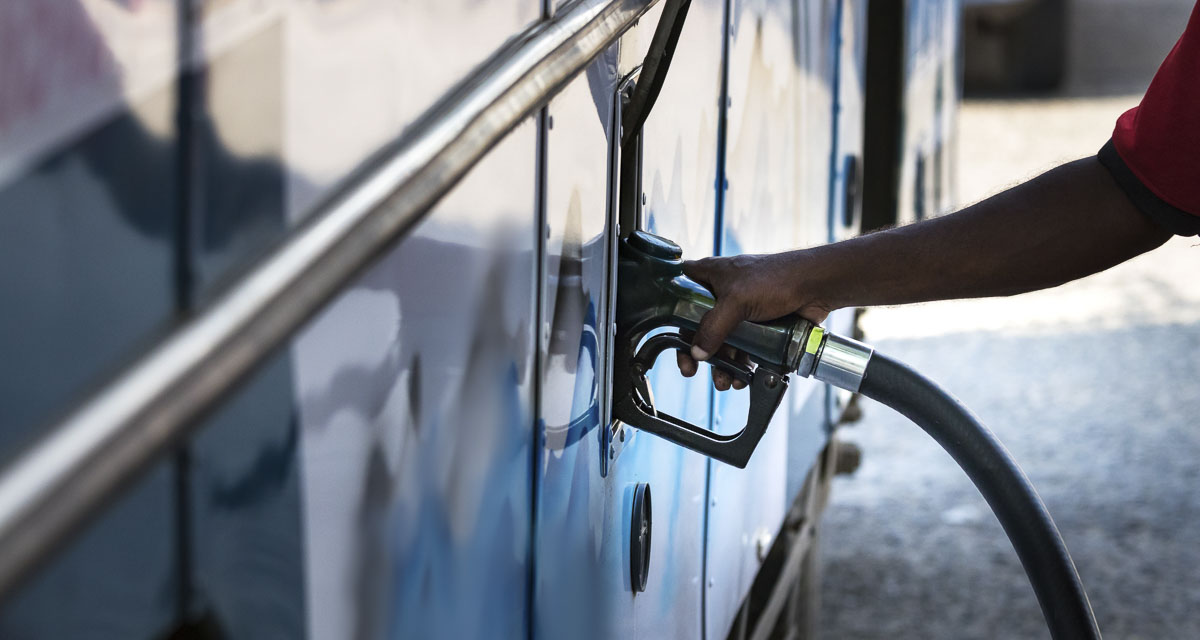
Charles Prestrud of the Washington Policy Center believes that transit does face challenges, but revenue from the Climate Commitment Act isn’t the solution
Charles Prestrud
Washington Policy Center
Opponents of I-2117 have recently run a TV ad claiming the initiative would “gut public transit.” Their website goes on to say the initiative would “reduce public transit service.” To ascertain the truth of those claims we need to start by looking at transit funding.

In 2022 transit agencies in Washington took in more than $5 billion. The primary transit revenue sources are sales tax, federal grants, interest on reserves and advertising income. Residents of the Sound Transit district also pay a property tax and motor vehicle excise tax. Most transit agencies also collect fares from customers, well, some customers, but state-wide farebox revenue constitutes less than 10% of total revenue.
So, how much of that $5 billion per year would be lost if voters approve I-2117? None. Zero. This is because I-2117 does not change the existing local taxes that provide the vast majority of transit agency revenue, nor would the initiative reduce federal grants or interest income.
In fact, transit agency revenue is forecast to continue increasing regardless of the initiative. Over the last decade, transit revenue has grown much faster than inflation. From 2012 to 2022 total transit revenue in Washington jumped by 67 percent from $3 billion to over $5 billion adjusted for inflation.
Transit subsidy in some areas of Washington now ranks among the highest in the United States. For example, the average household in the Sound Transit district pays over $1,700 per year to that agency. In addition to the Sound Transit taxes, households in King County and the portion of Snohomish that is within the Community Transit district pay an additional transit tax that averages about $730 per household per year. All of those revenues will remain in effect if voters approve I-2117, therefore the initiative would not “gut” transit, nor necessitate service reductions.
If the Climate Commitment Act is not repealed the legislature can provide additional funding for transit in the years ahead, but the amount included in the 2023-2025 biennial budget is only about $100 million per year, which is less than 2% of total transit revenue. In other words, not enough to “gut” transit if it didn’t become available.
Despite the handwringing of opponents, the potential impact on ridership is speculative. Very little of the Climate Commitment Act funding for transit in the biennial budget actually goes toward service, most goes toward capital projects, such as electric buses, that may not increase ridership at all. It is convenient for opponents to assume the revenue will increase ridership, but ridership trends are influenced more by demand-side factors, such as the shift to remote work, than budget growth. We can see that in the trend of decreasing ridership, which has fallen by about 30% over the last ten years despite the large increase in revenue. Initiative 2117 would not change the larger societal and economic factors that have led to decreased transit demand. Transit does face challenges, but revenue from the Climate Commitment Act isn’t the solution.
A balanced assessment of the initiative would also take note of a positive effect on transit budgets, which is that transit agency expenses for diesel fuel, gasoline and natural gas would be reduced by millions of dollars per year. Funny the opponents didn’t mention that.
Charles Prestrud is the director of the Coles Center for Transportation at the Washington Policy Center.
Also read:
- Rep. John Ley supports C-TRAN Bus Rapid Transit to save Washington moneyRep. John Ley praised C-TRAN’s new BRT line as a faster, lower-cost alternative to light rail, urging support for transit options that save taxpayers money and improve service.
- C-TRAN, WSU Vancouver celebrates groundbreaking for The Vine on Highway 99C-TRAN and WSU Vancouver broke ground on the Vine’s Highway 99 route, a 9-mile bus rapid transit line connecting the university to downtown Vancouver and the Waterfront, set to open in 2027.
- C-TRAN board again postpones vote on light rail operations and maintenance costsThe C-TRAN board again postponed a vote on language regarding operations and maintenance costs tied to light rail expansion, with pending lawsuits involving Michelle Belkot continuing to impact board actions.
- Opinion: ‘The Interstate Bridge project lacks billions in funding from both Oregon and Washington’Lars Larson criticizes Oregon’s funding decisions, highlighting the billions missing from both states for the Interstate Bridge replacement project and calling it a dead-end effort lacking Coast Guard approval.
- Plan ahead for ramp closures on I-5 near Ridgefield, July 9-10WSDOT will close three I-5 off-ramps near Ridgefield July 9–10 to test wrong-way detection systems and improve safety.









